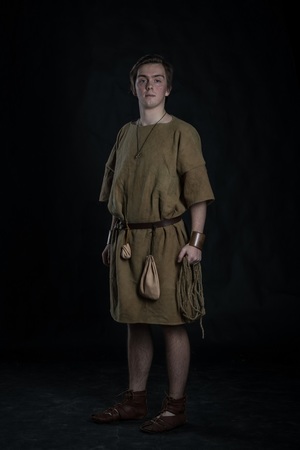Plebeians
Plebs (plebeians) (from Latin "plere" — to fill) — were inhabitants of Ancient Rome, initially having no political rights, unlike patricians.
The population of Rome grew through the conquest of neighboring tribes and cities. At the same time, the incoming population was attributed to various Roman tribes, which were established on a clan basis and reflected the union of three ethnic components: Latins, Sabines, and Etruscans. Full members of the Roman community gradually turned into a privileged part of society. They were called patricians and initially only they made up the "Roman people".
Subsequently, the new population was no longer included in the tribes, that is, they could not become members of the ancient clans and be considered the "Roman people". They could not use communal land or participate in religious ceremonies. Landless plebeians were mainly engaged in handicrafts and petty trade. Some of them were very wealthy people. But both poor and rich plebeians were equally powerless in front of the patricians. Therefore, initially having no rights, the plebeians eventually won the right to elect so-called plebeian tribunes, who could veto the decisions of patrician magistrates. Initially, their decisions were the law only among the plebeians, but as a result of a long struggle, the rights of patricians and plebeians were equalized.
In the middle of the 5th century BC, under the pressure of plebeians, laws were drawn up, written on 12 copper plates, and displayed for review in the central square of Rome. It should be noted that these laws included a ban on marriages between plebeians and patricians, but it lasted less than a year, and around 445 BC, thanks to the efforts of the people's tribune Gaius Canuleius, it was abolished.
At the beginning of the 3rd century BC, the patrician and wealthy plebeian elites merged into one estate - nobility, and in 287 BC, a law was passed that the decisions of the plebeian assemblies (plebiscites) are mandatory for all citizens regardless of origin. From this time, patricians and plebeians ceased to be different class-estates. Wealthy citizens formed the equestrian order, and all the poor made up the plebs, which included free artisans, peasants, and petty traders.



